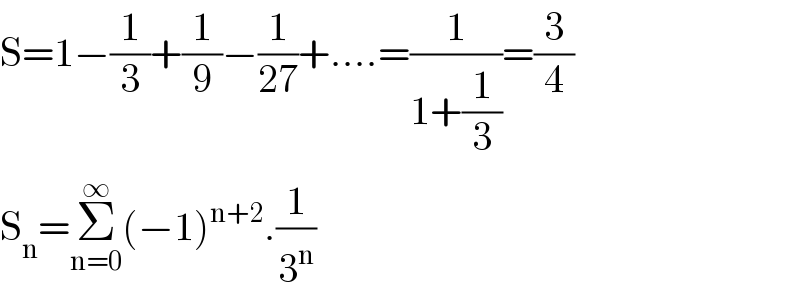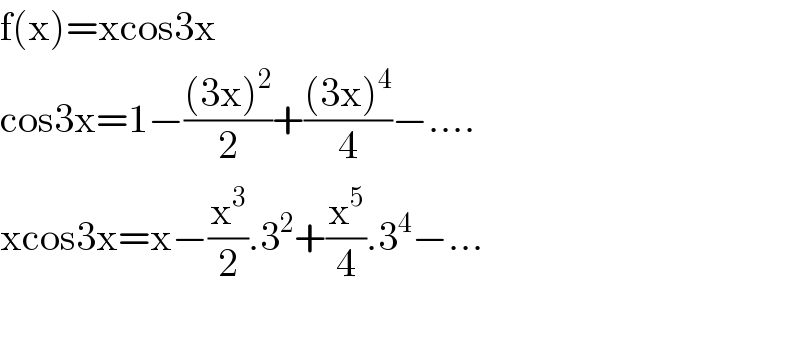Question Number 115224 by mohammad17 last updated on 24/Sep/20

Answered by Dwaipayan Shikari last updated on 24/Sep/20

$$\mathrm{S}=\mathrm{1}−\frac{\mathrm{1}}{\mathrm{3}}+\frac{\mathrm{1}}{\mathrm{9}}−\frac{\mathrm{1}}{\mathrm{27}}+….=\frac{\mathrm{1}}{\mathrm{1}+\frac{\mathrm{1}}{\mathrm{3}}}=\frac{\mathrm{3}}{\mathrm{4}} \\ $$$$\mathrm{S}_{\mathrm{n}} =\underset{\mathrm{n}=\mathrm{0}} {\overset{\infty} {\sum}}\left(−\mathrm{1}\right)^{\mathrm{n}+\mathrm{2}} .\frac{\mathrm{1}}{\mathrm{3}^{\mathrm{n}} } \\ $$
Answered by Dwaipayan Shikari last updated on 24/Sep/20

$$\mathrm{f}\left(\mathrm{x}\right)=\mathrm{xcos3x} \\ $$$$\mathrm{cos3x}=\mathrm{1}−\frac{\left(\mathrm{3x}\right)^{\mathrm{2}} }{\mathrm{2}}+\frac{\left(\mathrm{3x}\right)^{\mathrm{4}} }{\mathrm{4}}−…. \\ $$$$\mathrm{xcos3x}=\mathrm{x}−\frac{\mathrm{x}^{\mathrm{3}} }{\mathrm{2}}.\mathrm{3}^{\mathrm{2}} +\frac{\mathrm{x}^{\mathrm{5}} }{\mathrm{4}}.\mathrm{3}^{\mathrm{4}} −… \\ $$$$ \\ $$
